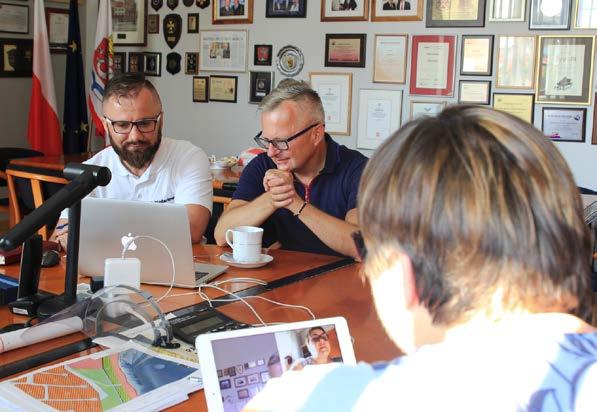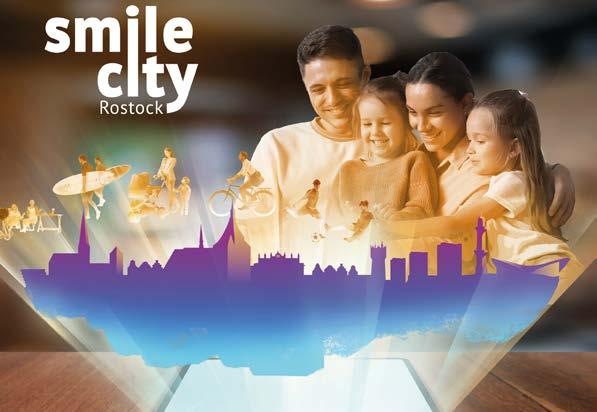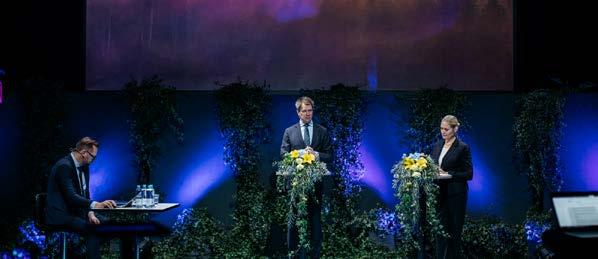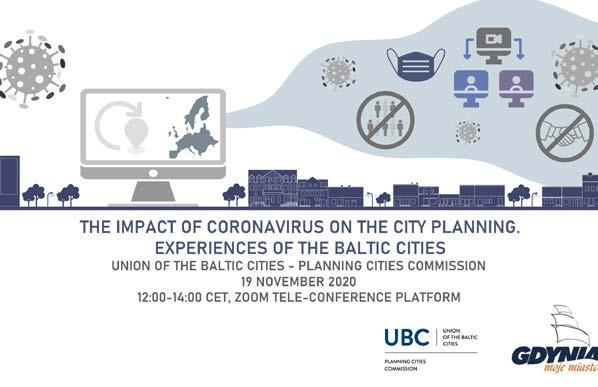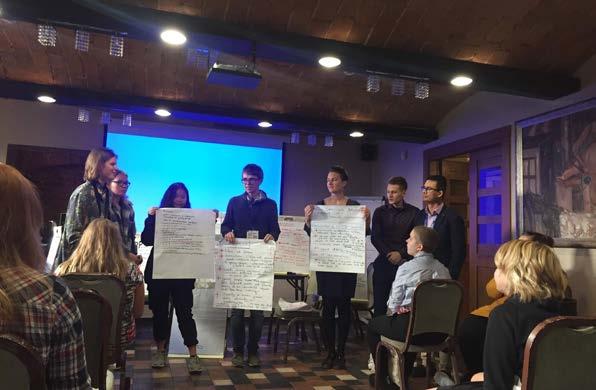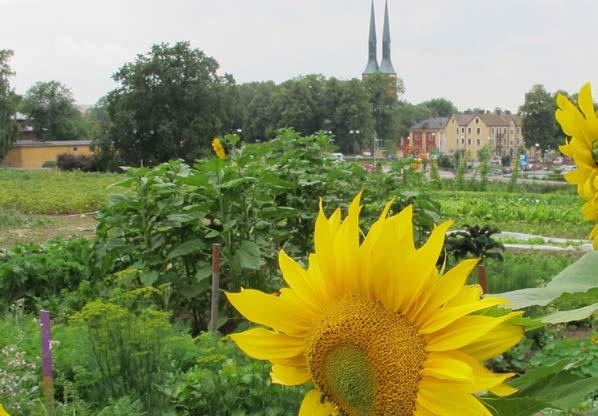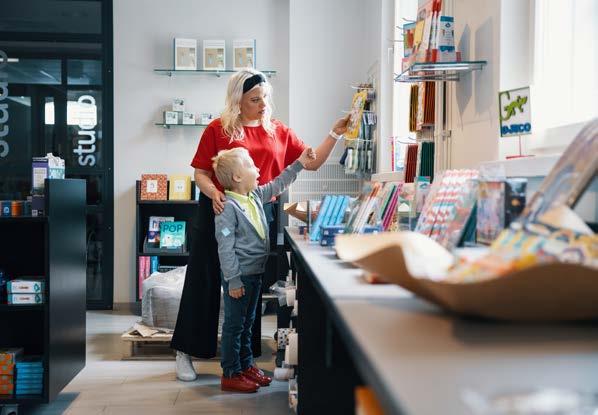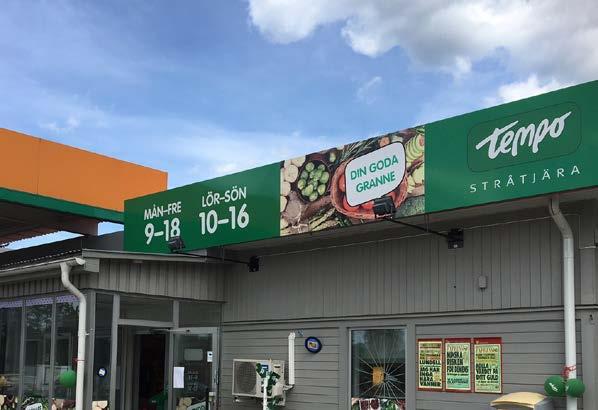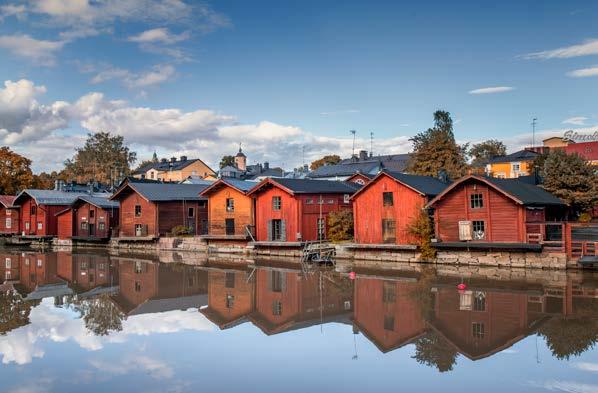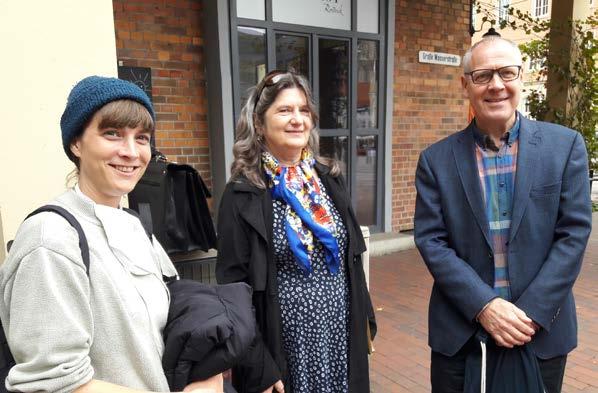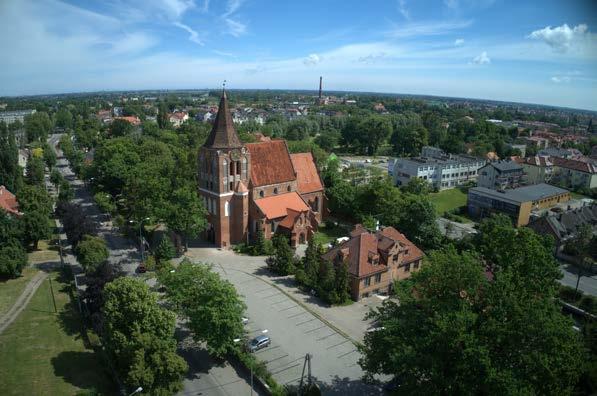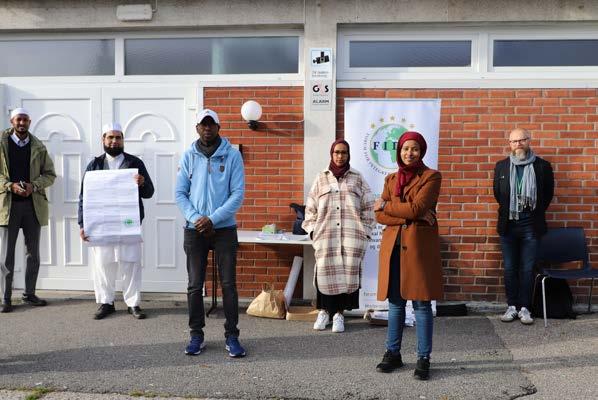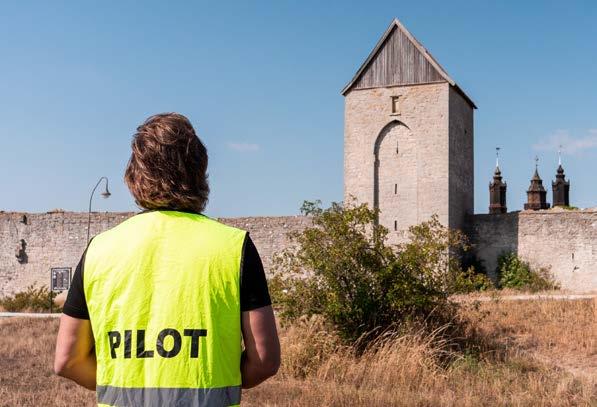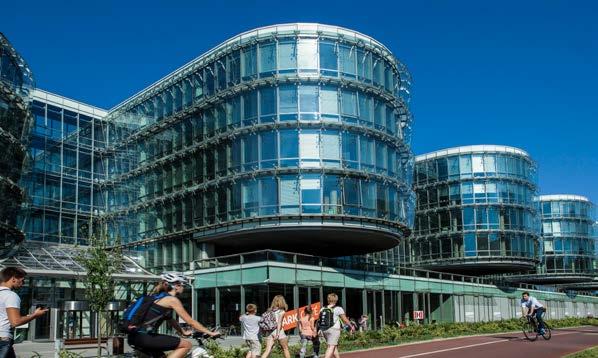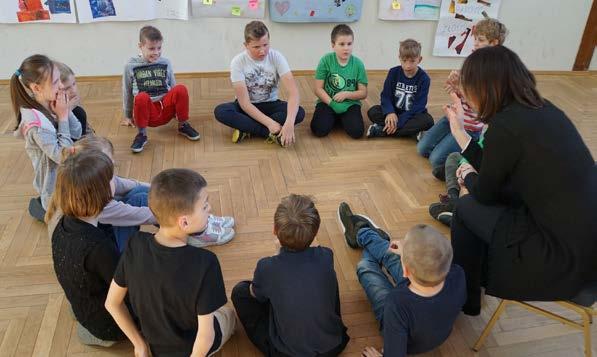REAPING THE BENEFITS OF GOOD RELATIONS by Kristin Wallem Timenes | kristin.wallem.timenes@kristiansand.kommune.no Leaders of the Muslim community outside the mosque in Kristiansand, Norway. Photo: Kristiansand municipality
On 12 March 2020, the Norwegian government initiated the most intrusive measures the country has ever seen in peacetime. The objective was to prevent the spread of the Covid-19 virus. “How to communicate these strict new measures to the immigrant population was a challenge, particularly since many of our immigrants do not understand Norwegian,” says Kim Henrik Gronert, Advisor for Intercultural Dialogue in the municipality of Kristiansand, Norway. Good relations Luckily, Kristiansand municipality could reap the benefits of many years of building close relations with the immigrant society. About 15 years ago, there was an increase in right wing and neo Nazi groups in the southern part of Norway. At this time the local police, the municipality and the Muslim leaders came together and created a platform for dialogue. Sitting down together to discuss these matters paved the way for a close dialogue and resulted in mutual trust and respect. Therefore, when the Covid-19 situation emerged, the municipality of Kristiansand was able to get relevant information out to the immigrant society very quickly through the leaders in these communities. “As we had already established good relations and a common ground for communication, we were able to convey the importance of complying with the strict national measures immediately. As a result, there were extremely few Covid-19 cases in the immigrant population of Kristiansand,” Gronert explains.
18
Helpful local Muslim society Particularly the Muslim Society in Kristiansand was very helpful in these efforts. The same also applies to the immigrant voluntary organization FIDA. There were also some smaller groups, such as the Somali women’s group that contacted every Somali family in their district. “We cannot stress enough the importance of getting to know the immigrant leaders in your community,” says Gronert. “It is also a question of building trust over time. The type of trust that can be capitalized when needed. We also learned the importance of making information available in a language that the immigrants understand.” Information from other countries Kristiansand municipality learned that immigrant groups communicate across the borders. I.e. immigrants who live in Norway keep in touch with friends, family and connections in other countries. Hence, they often rely on information about Covid-19 from other countries. The guidelines and information they received from countries elsewhere earlier this year was not necessarily in line with the guidelines of the Norwegian health authorities. “Our contacts within the immigrant society brought this challenge to our attention. We therefore made sure we provided our contacts with correct information in line with the information we received from the Norwegian health authorities translated to their language. We distributed information via sound recordings, written text or videos that were shared by our local immigrant leaders on relevant platforms. This goes to show that good relations can be a critical success factor in difficult times like these,” Gronert concludes.

